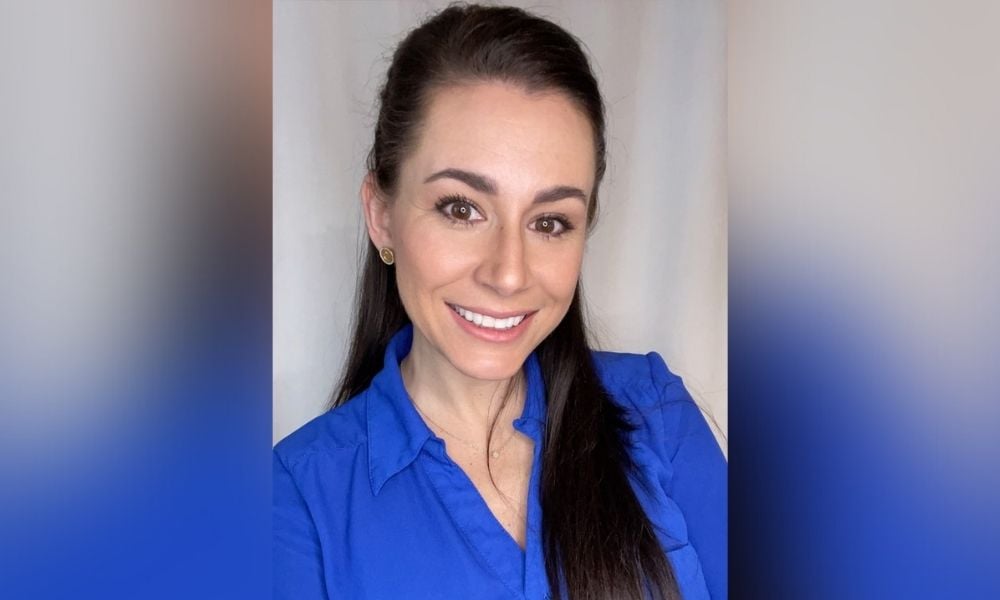
VP of People at Virtana relies on tech and data to make decisions, help company scale rapidly

Even before the COVID-19 pandemic, HR departments across the United States were receiving pressure from leadership to be more analytical with its approach and to understand how its decisions affect the bottom line.
A self-described “lifelong learner,” Kimberly Perryman has taken the challenge head on. She’s been studying how artificial intelligence (AI) can be applied to HR analytics, which will certainly help her as vice president of people at Virtana, an emerging player in Silicon Valley that provides an AI-powered, multi-cloud management platform. More than 150 companies rely upon the platform, including Apple, GEICO, Costco and Hyundai.
“I’m quite fascinated with technology – not to the extent of coding – but I love data, analytics and the story it can tell,” Perryman told HRD. “Traditionally, HR has been able to report on what has happened and then make predictions from there. But the HR industry hasn’t taken time to understand AI for the use of predicting how our decisions could impact employees. So, I want to find a few places to start to show a true correlation between data sets because that’s going to be able to help us make better decisions.”
Perryman joined the tech firm in March on the heels of one of the largest financing rounds and record-breaking profitable growth in the history of the 13-year-old company. Because of Virtana’s growth trajectory, the Texas native was brought in to assist the company in scaling rapidly while staying true to its ideals and culture. With nearly 15 years of experience leading people functions at tech firms, the recruiter-turned-HR leader was the perfect choice to help guide Virtana at this pivotal point.
After all, her previous employer NextLink expanded from 150 employees when she started four years ago to 900 earlier this year. The growth was not only in terms of headcount, but also geographically, as the company expanded from Texas to five other states.
“You have to be thoughtful in how you scale, especially at that rate,” Perryman says. “In places where you don’t have face-to-face interaction, trying to create cohesiveness and culture takes a lot of effort. That’s what interested me in going into HR. A recruiter sells employees on how a great company is, so I wanted to sit on the other side of the fence and ensure companies are able to create programs that foster the culture and all the things that recruiters tend to promise.”
Read more: Managing director reveals secret weapon in the ‘war for talent’
As NextLink grew, Perryman performed plenty of outreach to gauge how employees were feeling with all the changes. Anonymous surveys were sent out and internal tools were used to track feedback and identify themes, such as training, leadership, opportunity or pay. From there, she was able to document and report trends to be aware of and focus on. Another component to the outreach program consisted of calling every employee at least once a year just to check in.
“Instead of HR always calling with a problem, we wanted employees to know they could come to us,” Perryman says. “We found that effort opened up a lot of conversation with not just employees, but also leaders. Over the past two years, there’s been a positive light shined on HR for our ability to holistically support and rally behind employees. There’s a major shift in the industry where we have a strong mission to change the perception HR has typically held.”
Admittedly, Perryman won’t be shaking up the company because Virtana already has a great culture, earning more than 20 innovation and leadership awards in the past year. Most recently, Virtana was named "Best Company Culture" and "Best Company for Women" by Comparably. Those honors are in large part due to Virtana prioritizing its people, providing flexibility, autonomy, empowerment and support.
“If I’ve learned anything these past two years, it’s that candidates are looking more for an experience and a culture than a dollar amount,” Perryman says. “Compensation is important and you have to be competitive, but what attracts candidates to the conversation is the company’s representation of who you are. You have to listen and have meaningful, open-minded conversations about what they want.”
Of course, employees’ needs are constantly changing as they continue to navigate the pandemic. Re-evaluating their priorities in life, employees have been leaving their positions for greener pastures, demanding higher salaries, better working conditions, greater work/life balance and more opportunities to advance their career. After all, more than 50 million Americans have quit their jobs over the past year as part of the Great Resignation.
“I have to help scale the company while creating consistency, quality, fairness and making sure I’m monitoring things at a high level,” Perryman says. “I have to make sure that the culture isn’t rocked, that we don’t lose longstanding employees and that we create programs that upskill our current workforce so we’re not just hiring, but also promoting.”